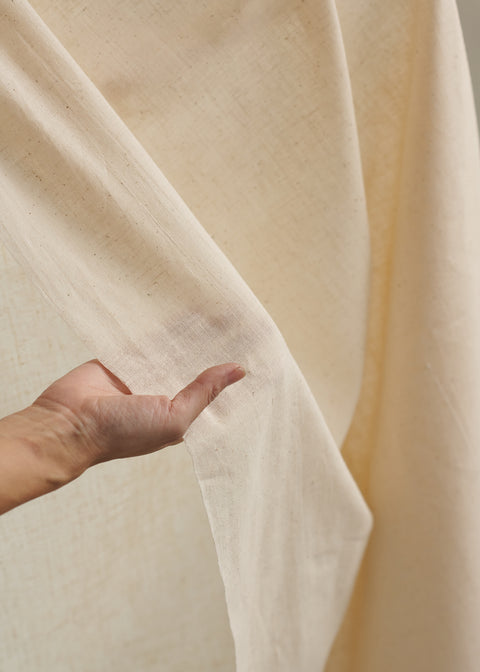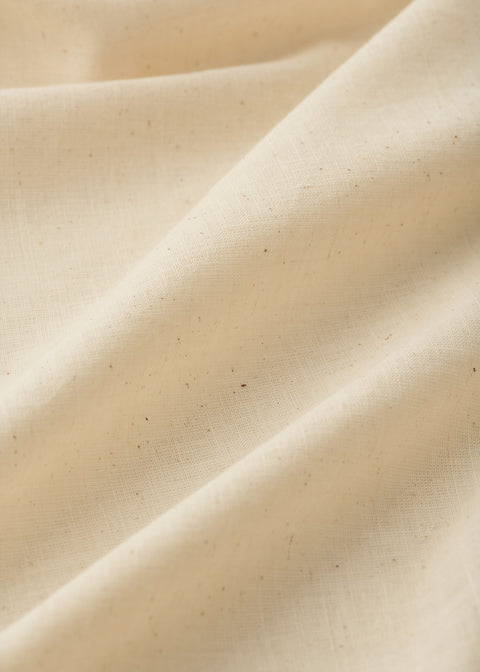

Tamil Nadu Native Karunganni Cotton (1 x 1)
*The displayed price is per 10cm, and you can purchase in 10cm increments. For example, if you want to purchase 80cm, please select "8" as the quantity.
Product Description
Karunganni cotton is a native cotton variety that Swaminathan V of Kaskom works with farmers in Tamil Nadu. CALICO has been introducing it as part of Gaam no Otolo since 2020.
The biggest difference between this and other cottons is the high oil content. At first, it doesn't absorb water very well, but as you use it, more and more people are becoming fascinated by the texture that becomes more familiar and the sturdy luster unique to Indigenous cotton.
Even in India, where cotton originates, 96% of the cotton has already been switched to genetically modified cotton from the United States. However, Swaminathan has continued to study the lost original cotton of Tamil Nadu and its potential, and has continued to work to persuade farmers to preserve it.
With roots that are six feet long, it can grow using only rainfall and groundwater, and does not require investment in special irrigation equipment, pesticides, or fertilizers, making it possible for even small-scale farmers to start producing it.
It has been found that by intercropping with coriander and kalonji, the production risks can be spread and it can be harvested about three times a year.
Although the farmers were skeptical at first, they are now finding joy in being able to generate additional income and be involved in cultivating cotton that is already grown on their land.
Whether we can continue doing this in the future will depend on the demand.
The color is unbleached beige. There are some dark grains (cotton seeds and waste) mixed in. Because it is a short fiber, it cannot be woven into a delicate fine thread like Bengal's muslin khadi, but the slightly coarse, rough weave is one of the charms of the original cotton. It can be used for a wide range of purposes, such as shirt fabric and handkerchiefs.
Size
Fabric width: approx. 100 - 110 cm
Materials
Indigenous organic cotton
Region of production
Tamil Nadu
System of design
By craftpersons
Spinning
Hand spinning with ambar charka
Weaving
Plain weaving by hand
Dye
Undyed-Natural
Before you purchase
* This product is also sold in stores, so it may be sold out at the time of your order. If the product is out of stock after you place your order, we will contact you.
* If you purchase multiple pieces, we will try to send you rolls of the same color, but if they do not meet your request, we will accept returns at your expense. Please contact us. (Please note that we do not accept returns after cutting or processing.)
* Hand-spun yarn is mainly produced by village women using a modern and highly efficient spinning wheel called an amvirtualka. If the yarn breaks, it will have knots as it has to be spun by hand.
* Most hand-woven and hand-spun fabrics are made in village huts, and depending on the environment, threads and grass may be mixed in. There may also be uneven areas, twists, smudges caused by skipped threads, and unavoidable stains. Please understand that these are characteristics of Indian fabrics before purchasing.
* Depending on the material, friction during use may cause shrinkage or pilling. Please avoid excessive friction or pressure as it may cause damage to the fabric.

